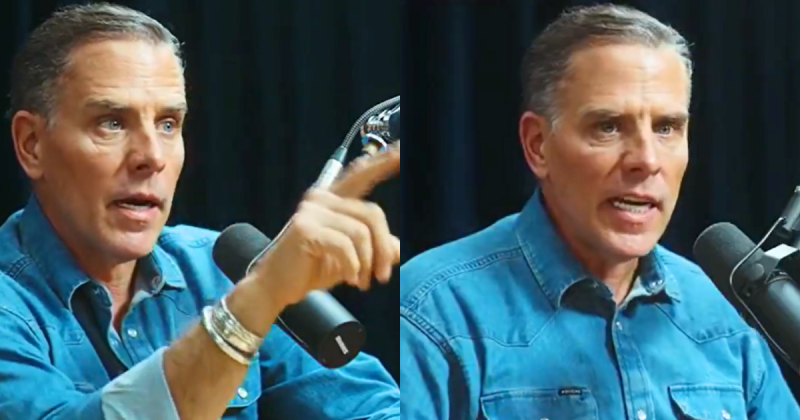Hunter Biden is drawing renewed scrutiny after a recent podcast appearance in which he urged Democrats to intensify their criticism of the MAGA movement rather than scale back rhetoric following the assassination of Turning Point USA founder Charlie Kirk.
Speaking on the “Wide Awake Podcast” with host Joshua Rubin, Biden argued that political extremism is best confronted through assertive and direct messaging rather than a moderated or cautious approach.
When Rubin asked whether the current political climate required both sides to “turn the temperature down,” Biden rejected the notion entirely.
“No, that’s not going to happen,” he said, adding, “I’m going to get myself in trouble for saying this… we need to turn the temperature up, and we need people to see it for what it is.”
He emphasized that his call for escalation was not an endorsement of violence.
“I’m 100% not saying that it needs to be violence,” Biden clarified, framing the comments instead as a demand for Democrats to be more vocal and uncompromising in challenging the MAGA movement’s influence.
Biden also criticized prominent media figures, including CNN’s Jake Tapper and Abby Phillip, for what he described as a failure to confront right-wing extremism adequately.
He argued that media commentators must “talk about this as it is” and stop treating extremism as an abstract discussion, noting that confronting the issue directly is essential to public understanding. “
Speaking truth to power,” he said, requires a more confrontational approach, and he called on Democratic leaders and journalists to abandon overly cautious messaging.
The remarks come amid broader concern over rising political hostility in the United States.
Surveys from independent research organizations and universities indicate a growing openness to political violence among some left-leaning respondents.
The Blaze reports that data from the Network Contagion Research Institute and Rutgers University show that a significant portion of left-leaning participants viewed the 2024 assassination attempt on President Donald Trump as, at minimum, somewhat justified.
These findings have intensified debates about the role of rhetoric in shaping public attitudes and the potential consequences of escalated political messaging.
Biden expanded his critique beyond individual commentators, warning that media consolidation has eroded standards of accountability.
He called the Tapper text-based interview with President Trump “a complete and utter abdication of responsibility as a journalist” and suggested that the “media ecosphere is being gobbled up by oligarchs,” implying that a concentrated media landscape reduces the ability to challenge powerful interests effectively.
Political analysts note that Biden’s remarks highlight a growing divide within the Democratic Party over how to respond to political polarization.
Leaders frequently condemn violence while some continue using combative rhetoric, raising questions about how to balance vigorous opposition with the risk of normalizing extreme discourse.
By advocating sharper messaging while explicitly disavowing violence, Biden positions himself at the center of that debate.
The assassination of Charlie Kirk has intensified national concern over radicalization and the role of political rhetoric in real-world outcomes.
Biden’s interview underscores the challenge facing leaders, media figures and voters: how to confront extremism effectively without contributing to further polarization.
The comments add urgency to the ongoing conversation about media accountability, political responsibility and the boundaries of acceptable discourse in an increasingly tense political landscape.
WATCH:

